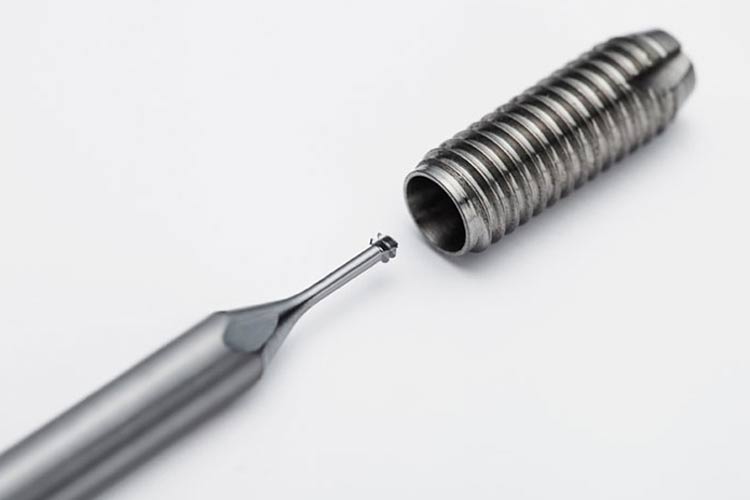When machining complex parts made from expensive materials, secure performance is clearly vital. With this in mind, cutting tool specialist Sandvik Coromant has introduced a range of small CoroMill® Plura thread milling cutters designed to counter the threat of tool breakage and component damage associated with conventional taps.
The advantages of thread milling compared with tapping are well documented. For example, a thread mill can address a range of hole diameters instead of just one hole size. The thread mill can also place threads closer to the bottom of a blind hole, while more room is available for chips to fall away, thus aiding machine uptime by avoiding the entanglement of swarf around the tool.
However, the greatest benefit is the avoidance of scrapped parts. Few who have worked in a machine shop will have escaped the pain of a broken tap in an expensive component. Often, the part is ruined, along with the tool of course. Only occasionally will a trip to the spark erosion shop save the day, but at a heavy cost in terms of both time and finance.
Medical parts are no exception. Machined commonly from surgical grade stainless steels and hard cobalt-chrome alloys, threading is often one of the final operations. As a result, plenty of value has already been added to the component – there is no margin for error.
The new CoroMill Plura range of small thread mills are designed purposely for the type of components required in the medical sector. Ideal for both right- and left-hand threading in materials up to a hardness of 63 HRc, the tools can generate threads from M1.6 to M12 depending on hole depth and material. UNC and UNF type thread mills are also available.


